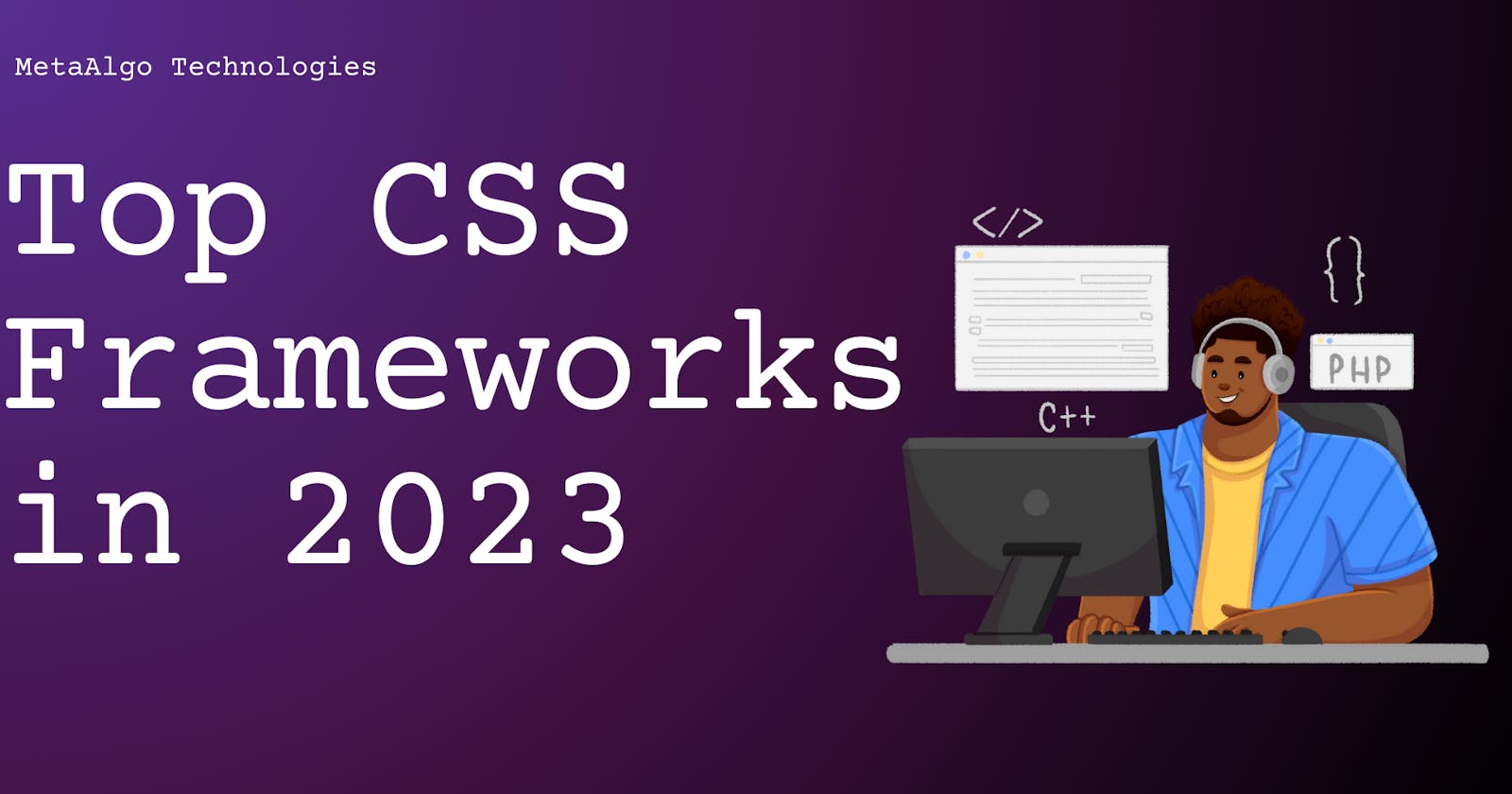Comparison of Top CSS frameworks in 2023
If you are having trouble choosing the CSS framework for your next project or you are just bored 🥱 with your current CSS framework look no further.
Introduction
What are CSS Frameworks?
CSS frameworks are pre-written and pre-designed libraries of CSS code that are meant to be used as a foundation for creating websites or web applications. They provide a set of pre-defined styles and UI components, such as buttons, forms, and grids, that can be easily customized and integrated into a project. These frameworks can help speed up the development process by reducing the amount of code that needs to be written from scratch, and can also provide a more consistent and professional look to a website.
CSS Frameworks
After analyzing the information provided, here are the top 10 CSS frameworks expected to be popular among front-end developers in 2023:
Bootstrap 5:
Bootstrap is the most popular CSS framework in the world and is getting a major overhaul with its latest version, Bootstrap 5.
Tailwind CSS:
Tailwind enables faster development of the front-end, and provides pre-designed widget menus and utility classes to build websites, making it beginner-friendly.
Materialize CSS:
Materialize CSS is a modern adaptive interface based on material design, launched by Google in 2014.
Foundation:
Foundation is a responsive front-end framework that is popular for its advanced grid system and easy customizability.
Bulma:
Bulma is a modern CSS framework that is based on Flexbox and is known for its ease of use and customization.
Semantic UI:
Semantic UI is a development framework that helps create beautiful, responsive layouts using human-friendly HTML.
UIKit:
UIKit is a lightweight and modular front-end framework that is designed to build fast and powerful web interfaces.
Pure:
Pure is a minimalist CSS framework that provides a responsive grid system, basic styling for common UI elements, and customizable buttons.
Milligram:
Milligram is a minimalist CSS framework that comes with a very low weight of 2 KB when compressed, making it easy to set up and get started with.
Spectre.css:
Spectre is a lightweight CSS framework that is designed to be responsive and fast, making it a good choice for building mobile-first websites.
Conclusion
Choosing the right CSS framework for your web development project can significantly impact its success. There are many factors to consider, including ease of use, customization options, responsive design, and cross-browser compatibility.
Ultimately, the choice of CSS framework depends on the specific needs of the project and the preferences of the developer. By considering the key features and benefits of each framework and testing them out, developers can find the perfect CSS framework to create stunning and responsive websites and web applications.
